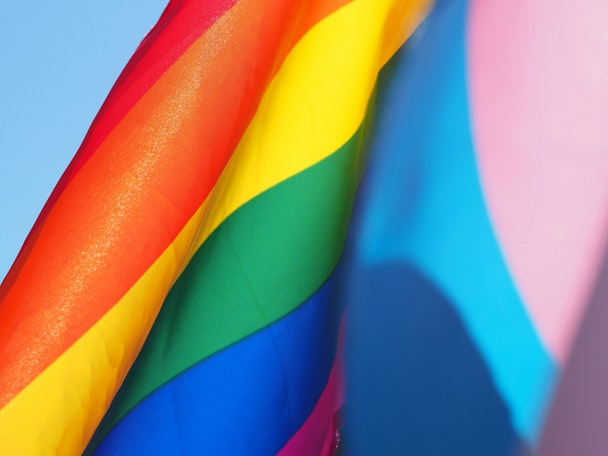Why the ‘get woke, go broke’ narrative is all wrong
With C-suite at top global brands debating whether DE&I policies and purpose marketing will help or hinder their bottom line, Kantar’s Brand Inclusion Index shows that inclusive marketing does influence what consumers buy.

Purpose ads can generate 16% more sales than less progressive marketing / Upsplash
Three-quarters (75%) of people decide what to buy based on a brand’s diversity and inclusion record, according to a Kantar study, adding weight to the argument that inclusive marketing is good for business.
Kantar’s Brand Index 2024 quizzed over 23,000 people across 18 countries, prioritizing the inclusion of ‘usually excluded’ populations to uncover consumer opinion on brand purpose.
The study compared purpose ads with less progressive marketing and found that the former could generate 16% more sales when compared with the latter. It also uncovered the social need for brands to improve their inclusivity record after finding that 72% of discrimination is happening in a work environment or during interactions with brands and 58% in a commercial setting.
Explore frequently asked questions
Kantar’s global head of diversity, equity and inclusion, Valeria Piaggio, says that since millennials and Gen Z prioritize diversity and inclusion more than other groups, “as these populations grow in size and buying power, these issues will carry more weight.”
‘Get woke, go broke’
The data from Kantar counters the notion that brands put their bottom line at risk when pursuing a purpose.
The ‘Get woke, go broke’ phrase comes from the idea that people will boycott businesses aligning with liberal values. It’s been hijacked by the political right to call out brands for everything from purpose marketing to internal D&I policies, Pride merchandise and Covid vaccinations.
The fallout from Bud Light’s partnership with trans influencer Dylan Mulvaney last year was the most high-profile case of ‘Get woke, go broke’ rhetoric, but brands such as Carhartt, Disney, Kellogg’s and United Airlines have all been victims in recent years.
Advertisement
The backlash has led businesses to reel back on purpose, with Unilever the most notable: its chief exec recently put an end to ‘force fitting’ purpose into brands. More recently, senior marketers anonymously revealed to The Drum that they had pulled back from LGBTQ+ activities.
However, Piaggio argues that brands will be “rewarded” for standing by their commitments; especially, she says, “in the face of vocal communities that stoke the culture wars by pitting minority groups against one another.”
Google perceived as most inclusive global brand
The report also ranked brands based on their perceived commitment to diversity and inclusion. Google topped the list, with consumers – particularly in marginalized communities – praising the tech firm for its “unwavering” commitment to DE&I through its internal policies and, crucially, in its marketing. In 2020, Google said it would increase senior leaders from underrepresented groups by 30% by 2025 and double Black representation in non-senior positions by the same year.
Amazon ranked second, followed by Nike, Dove, McDonald’s, Netflix, Coca-Cola, Adidas, Disney and then Apple.
Advertisement
Dove ranked number four in Kantar’s Brand Index data , having been commended for its “consistent and positive representation of women of all backgrounds.” Dove’s chief marketing officer recently spoke to The Drum about the dilemma of purpose over profit. He is an advocate for purpose being a legitimate business growth strategy, saying: “It is not easy, but it is possible. For me, that is the way to good capitalism and I’m very passionate about it because there are a lot of false myths about purpose.” Nike was commended by consumers for its support of the LGBTQ+ community.
“It’s a myth that inclusion marketing is about marketing to minorities. Inclusion marketing is expansive marketing. One of the fundamental ways to grow your brand is to predispose more people to it,” Piaggio added.
